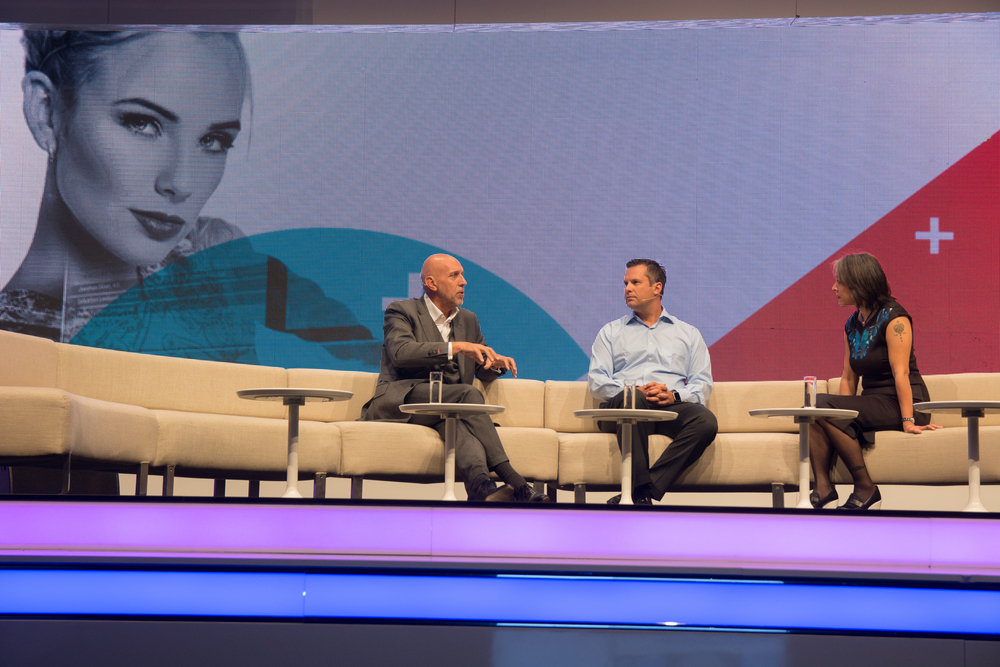After 8 months of conversations and interviews with representatives of Health Tech companies in Poland, and during a break before the second edition...

Discussion Panels – How to Use Their Potential
I often hear during a conference that the discussion panels are boring and do not contribute anything. It’s time you can go for coffee, talk to your friends at the booth, or return unanswered calls. I don’t think it has to be like this. Below you will find some ideas on how discussion panels can become the most interesting part of the conference.
I have had the opportunity to participate in many conferences. Some of them were boring, but there were also some great conversations that strongly influenced me. I often ran the discussion panels myself or took part in them, and I started to wonder what to do to make them better. How could I ensure that both the participants and the panelists themselves benefit from the event? Below are some observations and conclusions that will certainly be useful to all who will one day organize such panels.
1.Define Discussion Panel Goal
I know it sounds cliché, but have you ever asked yourself what the purpose of the panel is?
I think the listener should get the impression that he is listening to the conversation of friends in a cafe. Friends who share their opinions and their experiences. Sometimes they add some details, but above all, they draw conclusions from the group. They say what was done well, where they were wrong, how they rate what they’ve seen recently, etc.
In my opinion, the main aim of the panel is to present the opinions of others who we often consider to be experts in their field. Of course, it is good if you can learn something from someone who interestingly told you how they did something. However, the most important thing is to present your point of view on the specific thing, problem, or situation being discussed.
How do you do it?
Prepare your discussion panel well:
a) Meet the panelists
Of course, if you do not personally know your panelists it is worth getting to know them before the day your panel will meet. Making a phone call to get to know a little more about that person will help bridge the gaps that keep us from being able to talk to them like we would our friends or family. That bridge will also help when it comes to dealing with older ones on the panel who may require more sensitivity on our part, due to their ages or positions.
b) Prepare yourself for the subject you will be discussing
It seems trivial, but sometimes you get an offer to run an event that is not entirely within the realm of your speciality or it has little to do with it. Try to imagine what types of questions your guests may have for your panelists.
c) Prepare issues
They should take into account the objectives of the panel and share them with the other participants. Ask them what they think about your objectives and maybe they have their own ideas on such topics as personal branding, presentations of project effects, or promotional services. Each participant (e.g. the organizer, panelists, audience) has their own goals and you, as the moderator, should strive to take each one into consideration.
d) Find out who your guests will be
A very interesting thing happened during one discussion. It was based on the use of artificial intelligence on the internet.
One of the participants stood up during the question session and admitted that she had expected a much more advanced conversation. She expected to hear conclusions that went beyond the usual repetitive thinking. Everyone was stunned, but after a while, they began to applaud.
For me, this whole situation was a complete surprise and, at the same time, it clearly showed that guests are looking for more information than the norm. Since the conference has a certain format and is addressed to a specific group of recipients, we should understand their needs. Therefore, the debate mustn’t be too complicated for beginners nor too boring for the advanced in our audience.
2. Conduct the discussion panel appropriately
You, as moderator, set the tone for the discussion. I really enjoyed one debate when the moderator began the discussion with an introduction of the issue that would be raised. Then he invited people to take their places. Each one had the task of talking about themselves and why it would be worth listening to them carefully throughout the debate.
Another interesting solution is to have two moderators. The differing opinions, and even taking a place on both sides of the stage, can give the conversation more dynamics. I don’t like to ask the same question to each participant. By preparing specific questions for each panelist you get to hear what they think individually. Then the discussion gets even better when the panelists talk to each other and add their suggestions and comments. As the moderator, you can stimulate this discussion by asking additional questions to those on the panel.
An example may go like this:
Moderator: Katie, tell me what you think about the use of artificial intelligence in medicine.
Kathrine: I really like this topic… (examples of applications)
Moderator: Tom, what do you think about what Katie said? Do you agree? Any remarks?
Thomas: Yes, but I have a few more of my own… (examples)
When preparing for the discussion panel, we often determine the number of issues that are worth discussing. I remember during one panel, the conversation about women in the IT industry expanded so much in one area that it took 80% of the time. When I talked to the host, I asked her if that was the goal. In response, she showed me the notes she had prepared. That was only one of the ten issues she wanted to address. She said that since the participants were so involved in the discussion, it meant that the topic was important to them and worth developing. That was a great approach! It turned out that after the discussion ended, we all stayed and continued our discussion.
3.Questions from the audience
Often, when talking to various organizers, the question is should we allow or not allow the audience to ask questions, and if so, when? Personally, I don’t think there’s just one answer. I advise against rigidly dividing the time allocated for our discussion into two parts. That would require our panelists to go first and then we would include our audience in the discussion. This could become tricky when our listeners have no questions and the panel is left to come up with something to say just because there is time left to use and no more questions. I think it’s best to allow questions to be asked during the conversation. Therefore, an important job of the moderator is not only to keep an eye on the panelists but also to keep one on the audience to quickly spot a raised hand.
4.Dress code
I think this is much easier for men. Proper slacks, or a pair of jeans, with a shirt and jacket and they are all set. It’s harder for women. I feel that the demands on women are greater, but that is just my impression. I love dresses myself. It’s a simple and quick way to look good and not think about whether everything fits together. I do not wear too short dresses for official events, and yet I have seen in some photos that the dress rolled up and I showed too much thigh. It wasn’t my intent and I was embarrassed about it so now I’m going to choose even longer dresses.
What’s important is the shoes. I’m not talking about them being clean, because that is obvious. They should be well taken care of. In women, flat heels look bad, unless they match the outfit. I encourage you to wear heels, even if they are only to be worn on the panel itself. In my opinion, a woman looks much better in them.

5.Body language
You sit on the stage, however, your listeners have your feet at their eye level. It always amuses me when I am listening to a speaker and see what they do with their legs. Sometimes they cross their legs or bend them in very strange ways, but they don’t realize how they look to the audience. I understand that they are focused on what others are saying, that they are nervous, or that they will be the next speaker. In addition, the debate is often in a foreign language, so we are wondering how to present a given issue so that it is understandable. However, from an audience’s view, your body language may portray something entirely different than the professional person that you really are.
How Do Polish Health Tech Companies Communicate? Summary of the Health Tech of the Week Series
Health Tech of the Week: Mother and Child Startup Challenge – A Challenge for Innovators
In today's post from the "Health Tech of the Week" series, I present the third edition of the "Mother and Child Startup Challenge" competition,...
Health Tech of the Week: Health Venture Lab – a way to accelerate growth for medical projects
Since November 2023, I have been introducing startups in the Health Tech of The Week series, which have the potential or are already revolutionizing...




